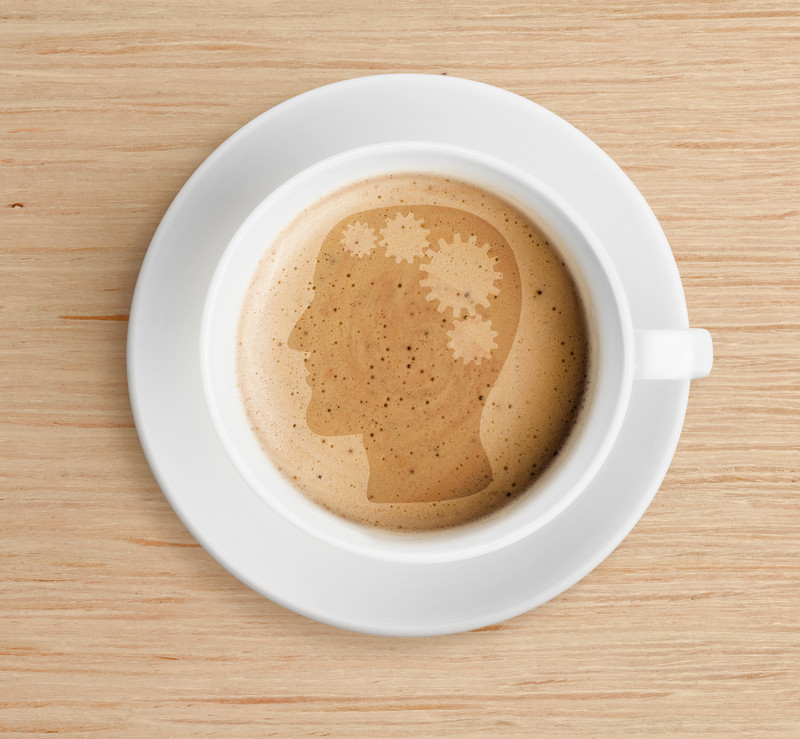Caffeine is a stimulant drug that helps improve mental treatment. It is believed to work by blocking adenosine neurotransmitter receptors, which increases the excitability of the brain. Caffeine also influences other neurotransmitters, such as norepinephrine, dopamine and acetylcholine, which have effects on both. mood and mental treatment.
Several studies indicate that caffeine helps improve performance in a variety of tasks, such as monitoring, response times, information processing, and more, but this depends on many factors, including daily consumption of this substance.
- One of the big questions for scientists is whether these effects of caffeine on mental processes are important for improving memory and.
- In the long run.
- Preventing degenerative brain diseases like Alzheimer’s disease.
In fact, there is a theory that associates caffeine consumption in middle age with a lower risk of developing Alzheimer’s disease The fact that caffeine not only helps improve cognitive performance when consumed, but can also prevent diseases like Alzheimer’s disease seems fine. , This is great news.
According to a recent study by Johns Hopkins University (Baltimore, Maryland, USA)U. S. ), published in 2014, caffeine helps improve memory, involving 160 men and women who were presented with a series of images that, five minutes later, were delivered to them. a 200 mg caffeine pill or a placebo.
Twenty-four hours later, participants who received the caffeine pill showed an improvement in their memory in terms of image memory compared to those receiving placebo. According to the researchers, the administration of the pill, after showing the images, shows that caffeine improves the memory of the participants, and even indicates that the improvement is due to increased concentration or concentration.
On the other hand, the journal Neuroscience found that when older people consume caffeine, their working memory improves compared to those who do not.
Another study found that working memory improved significantly with caffeine consumption, but only in extroverted adults. A second study was conducted to replicate this conclusion. In this case, the researchers concluded that the series memory and memory of those who were extroverted and consumed caffeine improved, but also concluded that caffeine helps improve reaction rate and the ability to assimilate new information.
Another study measured the combination of caffeine and glucose, and found that when administered together, participants’ reaction time, verbal memory and attention (concentration) improved compared to those who only took caffeine or glucose, as well as those given placebo.
Other research has shown that caffeine can also improve spatial memory. This research compared regular caffeine users to those who occasionally consumed caffeine. The results showed that when both groups consumed caffeine, their ability to create mind maps improved.
Interestingly, those who regularly consumed caffeine showed fewer benefits compared to the caffeine dose received than those who rarely consumed caffeine.
Another study of women over the age of 65 who had cardiovascular disease and therefore an increased risk of cognitive impairment associated with vascular dementia (also known as vascular cognitive impairment) measured caffeine intake and conducted regular cognitive evaluations over five years to demonstrate the relationship between two.
The results concluded that women with the highest levels of caffeine consumption, particularly coffee and not caffeine in cola or tea drinks, performed better on cognitive tests than those who consumed less caffeine.
In this sense, it is worth noting a new research that has specifically studied the effect of caffeine on energy drinks (containing high levels of this substance) on the cognitive functioning of young people from 15 to 18 years of age, concluding that while these drinks increased arousal, participants who consumed energy drinks showed no difference in their cognitive function compared to those who drank a placebo.
A study published in 2009 on mice revealed that caffeine not only reverses the presence of Alzheimer’s disease in the brain (including beta-amyloid protein levels), but also reverses memory impairment.
Another 2011 survey found that moderate amounts of coffee offered some protection not only against Alzheimer’s disease, but also against cardiovascular disease.
Finally, it is worth noting the research published in 2013 in The Journal of Alzheimer’s Disease, in which researchers concluded that mice with dementia had a reversal of memory impairment and changes in the brain associated with dementia when caffeine was added to dementia. the water they drank.
Caffeine consumption is also linked to cognitive stability. People with mild cognitive impairment have a significant risk of developing Alzheimer’s disease. However, in a study published in The Journal of Alzheimer’s Disease in 2012, researchers reported that they found no participants with high levels of caffeine in the blood who had experienced an increase in mild cognitive decline to Alzheimer’s disease.
Although we have presented several studies, there is still a lot of research on caffeine and its effect on memory and other cognitive processes, although the results vary widely between them, there seems to be widespread support for the idea that caffeine stimulates cognitive functioning. In addition, some research indicates that the source of caffeine is important, as is the case with coffee.
However, caffeine has another effect. If over-consumed, it can also have its harmful effects. For some people, caffeine consumption, even in low doses, poses health risks.

